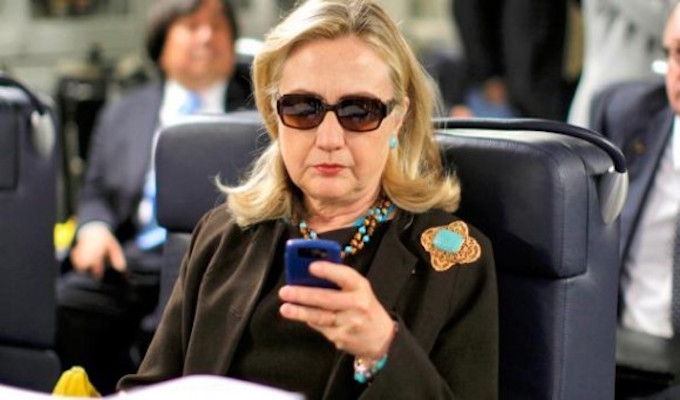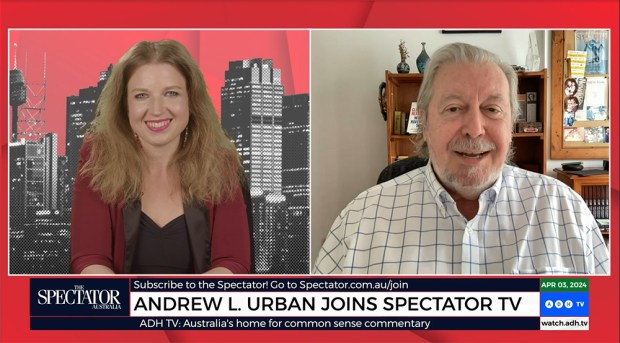 When you have a vested interest to hide and skeletons in the closet, using your own private email account and deleting it when questioned was a tactic we all remember from a certain election in 2016. A monumental scandal that plagued and derailed Hillary Clinton’s presidential campaign was the 33,000 emails that contained classified information and was subsequently deleted, raising issues of corruption and national security.
When you have a vested interest to hide and skeletons in the closet, using your own private email account and deleting it when questioned was a tactic we all remember from a certain election in 2016. A monumental scandal that plagued and derailed Hillary Clinton’s presidential campaign was the 33,000 emails that contained classified information and was subsequently deleted, raising issues of corruption and national security.
In Queensland, an inquiry into Energy Minister Mark Bailey is necessary to examine whether he has followed in the footsteps of the failed presidential candidate when it was discovered that he regularly used a private email account to secretly communicate with trade union bosses.
The similarities are remarkable with Clinton as Mr Bailey’s emails have also been deleted following an investigation by The Australian. When the concerns were raised about Clinton’s email, the FBI investigated and confirmed the suspicions that the emails contained confidential information.
Similarly, an investigation ought to be launched to examine whether or not Mark Bailey’s use of a private email account breached security measures and jeopardised the discussion of sensitive information. An investigation is the only way to examine what occurred and to exonerate Mr Bailey if there was no wrongdoing.
Mr Bailey decision to use a private email and consequently delete the emails highlights two main concerns that need to be investigated and examined. The first being the utilisation of these private emails as a vessel to potentially conduct illegal deals which are subsequently deleted, raising ethical concerns about accountability and interfering with the ability of the public to access government records.
The second issue is national security and the vulnerability of these private emails when they are used to communicate sensitive and confidential matters. Even if nothing illegal occurred, these represent potential lapses of judgement and must be identified for voters of Queensland to have confidence in Mr Bailey’s ministership to prevent similar incidents from occurring in the future.
The leaked emails by The Australian uncovered that Mr Bailey was secretly lobbied by Electrical Trades Union boss Peter Simpson in November who opposed a proposed $13 billion superannuation fund merger involving Queensland’s Energy Super. Unsurprisingly, the merger has now been abandoned and the alarming questions remain about the control of the unions on the Queensland Government. An examination into Mr Bailey and his vanishing emails is necessary to ensure there was no wrongdoing by the Energy Minister and that the unions did not undermine his ability to make a sound and objective decision.
The Queensland premier, Annastacia Palaszczuk condemned Mr Bailey, one of her cabinet ministers and warned her ministry to use only official “government email channels”. This was the right response by the Queensland premier but it does not go far enough to restore the publics’ confidence in the Queensland Government. An investigation into why the emails were deleted and a recovery of the emails to examine the discussion between Mr Bailey and the trade unions is imperative to promoting integrity and honesty.
Mr Bailey’s refusal to release the correspondence with union officials occurred after The Australian formally applied for a release under the Right to Information laws and were denied. This application was unable to be fulfilled after the minister’s email account “had been closed” and a “search of the email address could not be undertaken”, an RTI Officer claimed.
A mere four days after The Australian lodged its RTI application, Mr Bailey confirmed he had deleted the emails. Although there are presently no allegations of any wrongdoing on the part of Mr Bailey, an investigation is warranted to ensure that any potential tampering or deleting of the evidence and emails has not occurred and that there was no obstruction against greater transparency and accountability.
Tampering with evidence to interfere with an investigation is unacceptable and should also be punishable if and when public servants hide evidence of possible secret deals and discussions with trade unions. Therefore, it is of paramount importance that public officials should be investigated regarding the content of any emails where there is the potential for the values of transparency and honesty to be sabotaged. Any hiding of negotiations and discussions in a private email and deleting them before they could be examined should also be scrutinised. The ability for government officials to hide behind a private email account to potentially conduct secret deals to satisfy their own vested interest with organisations such as the trade unions ought to be investigated immediately.
Graeme Orr, a professor of law at the University of Queensland stated that the email account should have been maintained for the purposes of public records: “Under the Public Records Act — and the Premier’s edict — records related to a minister’s portfolio are to be kept. An energy minister’s email exchange with a union lobby over a sectoral fund is a ‘ministerial record’.”
Additionally, in the modern era where concerns about hacking, encryption and server security are paramount, the mere convenience of a personal email address does not substantiate as a valid reason for its usage. The concern with hacking and national security is seen in multiple attempts on the Clinton private email server and demonstrates the imperative for politicians to ensure their communications occur on secure and encrypted government channels.
Mr Bailey’s use of his private email – mangocube6@yahoo.co.uk – as inconspicuous as a name mangocube6 may be, his decision to communicate with colleagues and fellow ministerial counterparts on sensitive cabinet issues may amount to a failure in his duty to ensure his correspondence is protected by sufficient security measures.
After hiding and deleting the emails, the public deserves an investigation that recovers the deleted emails to ensure full faith in the process of the government. A retrieval of the emails is necessary to conclude whether he did or did not secretly take orders from union chiefs as their representative in Parliament and if anything, as was the case with Hillary Clinton, to clear him of any wrongdoing and set the publics’ mind at ease. An investigation came for Hillary Clinton; it is now due with Mark Bailey.
Brendon Zhu is a Research Associate at the Australian Taxpayers’ Alliance.
Got something to add? Join the discussion and comment below.
Got something to add? Join the discussion and comment below.
Get 10 issues for just $10
Subscribe to The Spectator Australia today for the next 10 magazine issues, plus full online access, for just $10.

























Comments
Don't miss out
Join the conversation with other Spectator Australia readers. Subscribe to leave a comment.
SUBSCRIBEAlready a subscriber? Log in